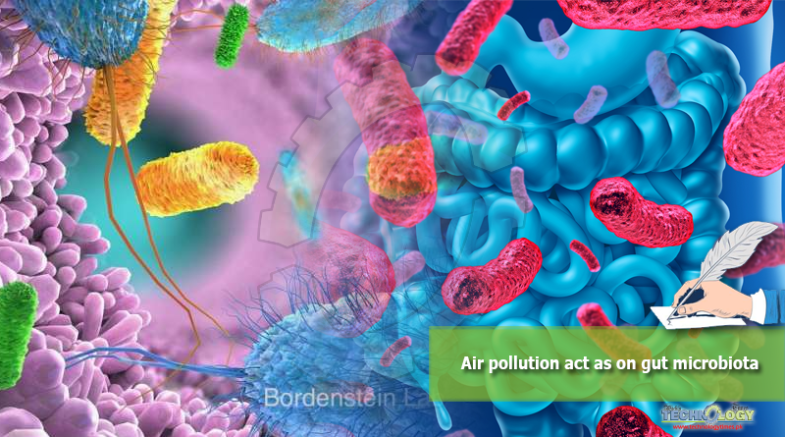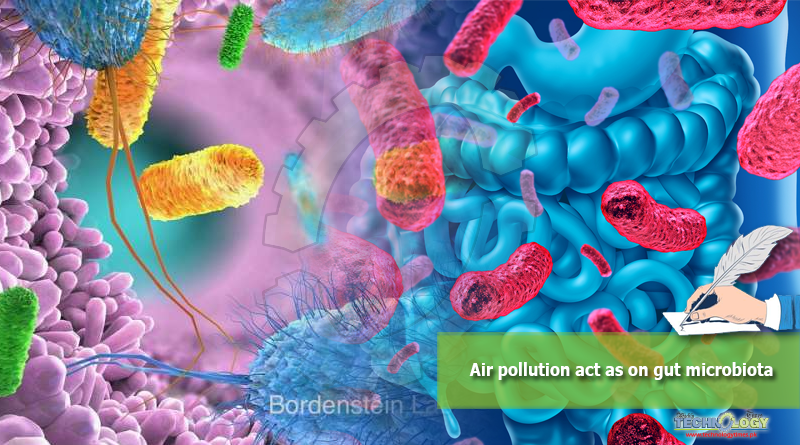Gut microbiota was previously known as gut flora, it lives in our intestine. It has tens of trillions of microorganisms, including at least 1000 different species of known bacteria with more than 3 million genes (150 times more than human genes).

Air pollution is the presence of harmful substances in the air that can result from natural causes. The major components of air pollution are pollen, sulfates, nitrates, organic carbon, mineral dust, polycyclic aromatic hydrocarbons (PAH), metals, ions, and biological components (microbial particles, lipopolysaccharide, and spores.
Atmospheric particulate matter with a diameter <2.5 µm (PM2.5) and pollution are worldwide environmental problems and may have negative effects on the cardiovascular disease through the lung and gut.
Urban ecology and disease
The world is seeing a dramatic rise in population growth in urban areas. As urban populations grow, the quality of the environment, and especially urban air pollution, will play an increasingly important role in public health.
Though research on airborne pollutants has mostly focused on cardiovascular and respiratory effects, emerging evidence suggests air pollutants are also having adverse effects on the gastrointestinal tract.
Epidemiological studies have revealed an association between exposure to air pollution and different gastrointestinal diseases including inflammatory bowel disease (IBD), appendicitis, irritable bowel syndrome and enteric infections in infants.
A rise in total measured air pollutants is associated with an increase in hospitalizations. In addition to the liver and adipose tissue, the intestine is an important organ system for lipid metabolism, and the intestinal redox lipids might be tightly associated with the intestinal and systematic inflammation.
Air pollutants can also enter the body through the oral cavity being directly ingested with food and liquids in significant amounts. Demonstrated that exposure to air pollution increased the production of mitochondrial reactive oxygen species (ROS) and the release of inflammatory cytokines among other effects, increasing overall gut permeability. The latter in turn can potentially affect the dynamics of the gut microbiota, possibly resulting in imbalances of this community.
Importantly, air pollution is not the only inhaled environmental exposure that has been associated with gastrointestinal disease. Smoking is an example of an inhaled exposure that has been shown to influence the susceptibility of developing IBD. Animal model studies suggest that smoking may mediate its effects through alterations of intestinal microbiota.
There are over 1014 microbes in the human gastrointestinal tract and they encode for over 100-fold more unique genes than our genome. Recent evidence has implicated a dysfunctional gut microbiome in the development of several disorders, including diabetes, obesity, metabolic disorders, and IBD.
Despite the well-studied effects of environmental pollutants on various health conditions, little is known about how air pollution impacts the gut microbiome.
Scientific findings
Using a human gastrointestinal simulator, illustrated that human intestinal bacteria metabolized inorganic arsenic from contaminated soils into various toxic species. Hypersensitive Rat was used as an animal model DNA was extracted from fecal samples. Amplicon Generation and the quality control of PCR products were performed.
The microbial diversity of the SHR rats was inversely associated with exposure to pollutants. In terms of relative abundance, 24 bacterial genera and 2 genera in particular (Actinobacillus and Fusobacterium) significantly declined, and one genus (Treponema) increased.
Moreover, pollutant exposure was associated with the accumulation of genes from the gut microbiota that are implicated in cardiovascular diseases. From the long-term exposure experiment, rats appeared to respond to pollutant injury.
In conclusion, these results suggest that the effects of atmospheric pollutants on organisms are not limited to the respiratory tract, but also include the gastrointestinal tract. Pollutants are likely to influence the intestinal microbiota and promote the progression of cardiovascular disease.
